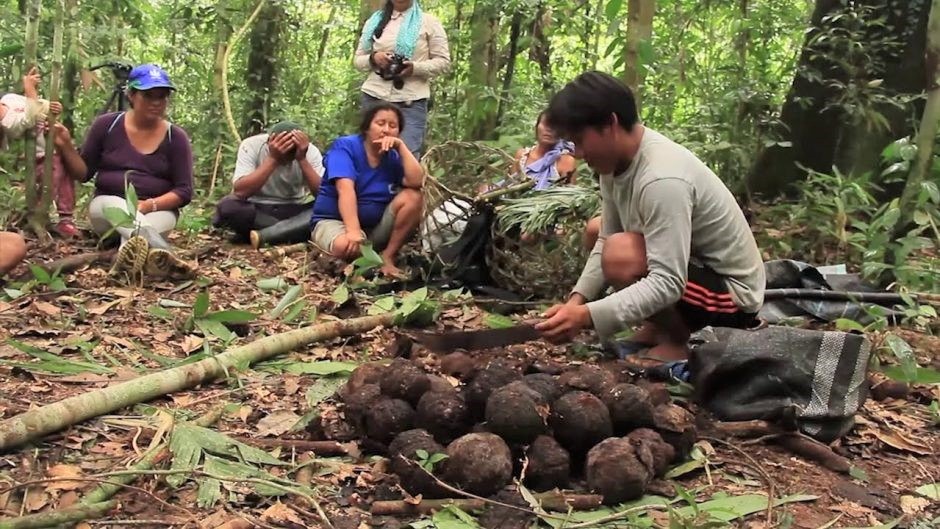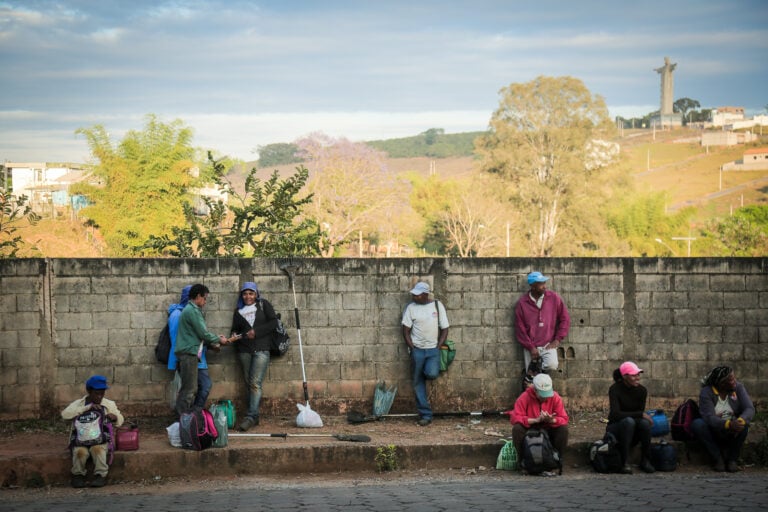
Children harvest Brazil nuts in Bolivia
Child labour, wages too low to support a family and workers who feel trapped in their work because of debt owed to their bosses – these are the main findings of an investigation into labour conditions in the Brazil nut sector in Bolivia. While most links in the production chain have benefited from rising prices in recent years, the wages of nut harvesters have remained the same.
Approximately 27,500 tonnes of Brazil nuts are traded annually worldwide. Of this total, 78 per cent comes from Bolivia. Most Brazil nuts end up in luxury nut mixes, muesli bars or breakfast cereals. In contrast to other nuts, Brazil nuts cannot be grown commercially. They only grow in the rainforest, which is why the trade in these nuts could contribute to the preservation of rainforests in Bolivia, Brazil and Peru.
Brazil nuts: Exploitative social and economic conditions in the Bolivian Amazon
Research by SOMO, the Belgian NGO FOS and the Bolivian organisation CIPCA shows that much is wrong with the working conditions in this sector. The organisations conducted research in harvesting areas and processing companies in Bolivia, where approximately 22,000 people are employed. In addition, they investigated the value distribution in the international supply chain.
Sixty-four per cent of workers bring their underage children to help with the harvest. But even then, they do not earn enough to make ends meet. At harvest time, workers are also in a difficult situation with their employers. They are often in debt to their employer because of requested advances on their wages. Moreover, they are dependent on the employer for their basic necessities, because they live in isolated camps (barracas) where the shops belong to the plantation owner. In addition, a small proportion of workers in the harvest and nut processing factories experience threats, sexual harassment and violence at work.
Improving working conditions in this relatively small sector could yield a big reward: a sustainable and fair Brazil nut chain.
“I call on buyers in food retail and production to address the problematic situation urgently with their suppliers,”says Sanne van de Wal, researcher at SOMO.
Focus on the supply chain
This is the first time that the value distribution in the chain has been assessed. The research also shows which parties have benefited from price increases in recent years.
“It is very clear that distribution is skewed,’ says Van der Wal. ‘The people who harvest haven’t seen their wages go up, while everyone else in the supply chain in Bolivia has benefited from improving market conditions.”
This insight from the study has for the first time united and empowered workers and small indigenous and local producers in negotiating with employers for higher prices and wages. A number of major companies in each segment of the Brazil nut chain were asked to comment on the findings. Most offered little evidence of recognition but announced further investigations. Supermarket chain ALDI indicated that its own investigation into the problems was nearly completed, after which the group will take steps to deal with abuses.
Do you need more information?
-

Sanne van der Wal
Senior Researcher
Partners
-
FOS
-
CIPCA
-
Related news
-

-
Hungry for profits Published on:
 Vincent KiezebrinkPosted in category:Publication
Vincent KiezebrinkPosted in category:Publication Vincent Kiezebrink
Vincent Kiezebrink
-
 Modern slavery is still lurking in your coffee cupPosted in category:News
Modern slavery is still lurking in your coffee cupPosted in category:News Joseph Wilde-RamsingPublished on:
Joseph Wilde-RamsingPublished on:


